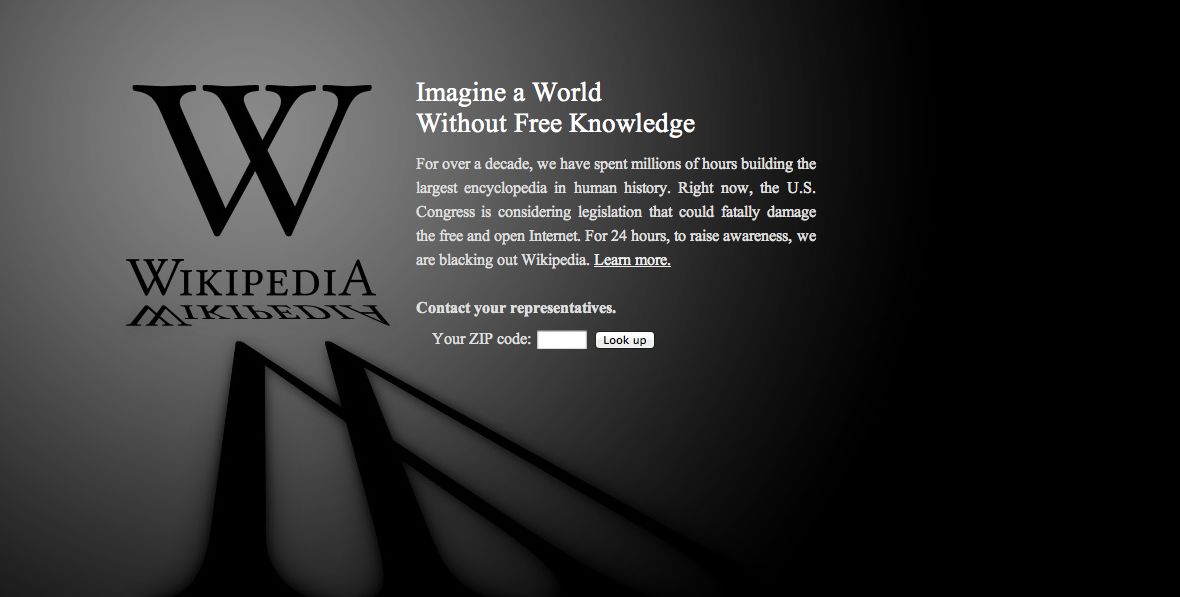SOPA: Weighing Arguments for Online Piracy

 This week several major websites and services opted to go dark in response to an upcoming vote on the Stop Online Piracy Act (SOPA) and Protect Intellectual Property Act (PIPA). The bill would allow intellectual property rights holders to petition the Department of Justice to shut down a site until potentially infringing material is removed. Beyond the arguments about freedom of information, speech, and press there are other economic and social factors that we are not hearing as much about.
This week several major websites and services opted to go dark in response to an upcoming vote on the Stop Online Piracy Act (SOPA) and Protect Intellectual Property Act (PIPA). The bill would allow intellectual property rights holders to petition the Department of Justice to shut down a site until potentially infringing material is removed. Beyond the arguments about freedom of information, speech, and press there are other economic and social factors that we are not hearing as much about.
The major supporters of SOPA and PIPA are largely from the entertainment industry and we are seeing a Hollywood vs. Silicon Valley battle play out on our computers and in Congress. Online piracy is not that bad for America or for the entertainment industry. Many Americans who willingly pirate entertainment media do so because they are not willing to pay the market price.
What is missing from the debate has been the reasons for its existence and associated societal benefits. When a major studio produces a film and sells it on iTunes for $12.99 it is surely cheaper than going to a store and purchasing the film for $20. But, when consumers can download the film for free, many will choose that option. This is not because they are thieves, but because they are making an economic decision where the value of the good to them is significantly lower than the market price.
Continuing to offer $5 worth of enjoyment to consumers for $12.99 is not going to work anymore. With other options available to consumers, they will find avenues to either gather the entertainment they desire at or below the cost they are willing to pay for it, or seek entertainment in other ways.
Intellectual property owners are treating these exchanges as lost sales, and in many ways they are, but they are ignoring the opportunity to turn them into sales. Instead of attempting to shut down websites with potentially infringing material, the entertainment industry should be focused on offering innovative means of consumption to the general public. When a downloader obtains a copy of a film or album they are still going to recommend it to their social networks if it is a good piece. This leads to other sales, exchanges, and social equity that are not being factored into the equation.
Let’s not forget that when online piracy started spreading as a public practice the industry responded with sites like Hulu, iTunes, and Netflix. These are all avenues that thousands of consumers use on a daily basis and provide models for future breakthroughs. Ultimately studios and labels may have to turn their creative content into a means for attracting users and capitalizing in several ways instead of solely on the sale of the film or album itself.
The entertainment industry has been struggling to find ways to protect their intellectual property for years and SOPA is just another stab at it. For the problem to go away, the industry must recognize the real value of their products and offer them at that price or find alternative methods to capitalize on them aside from shutting down online portals.
Online piracy could turn out to be the catalyst that propels the entertainment industry into the future as it incentivizes IP owners to move beyond their traditional models. Until that happens, the web community has spoken, keep your hands off our information.



